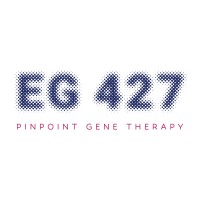EG 427 Secures €27 Million to Revolutionize Neurology Treatments
February 20, 2025, 3:33 pm

Location: France, Ile-of-France, Paris
Employees: 1-10
Founded date: 2019
Total raised: $48.29M
In a significant leap for biotechnology, Paris-based startup EG 427 has successfully closed a €27 million Series B financing round. This funding, co-led by Andera Partners and Bpifrance, marks a pivotal moment for the company as it aims to tackle chronic diseases in neurology through innovative genetic medicine.
Founded in 2019, EG 427 is on a mission to develop targeted genetic therapies for chronic neurological conditions. The company’s flagship product, EG110A, utilizes a non-replicating HSV-1 vector to address bladder dysfunctions, particularly neurogenic detrusor overactivity (NDO). This condition affects spinal cord injury (SCI) patients and is often overlooked in medical innovation. The funding will propel EG 427’s clinical trials, aiming to provide safer and more effective treatment options for millions.
The financing round also saw participation from SCI Ventures, a specialist fund backed by major spinal cord injury foundations, alongside existing investors. This diverse backing underscores the potential impact of EG 427’s work. The company’s focus on neuro-urology is timely, as this field has been historically underserved, despite the high costs associated with treating these conditions.
EG 427’s approach is rooted in its proprietary HERpes Modular Expression System (HERMES) technology. This platform allows for precise delivery of genetic therapies, targeting specific neurons while minimizing side effects. The technology’s ability to achieve focal transduction and selective expression of transgenes is a game-changer. It opens doors to new treatment paradigms that could significantly improve patient outcomes.
The funding will primarily support the phase 1b/2a clinical study of EG110A. This study aims to assess the safety and early efficacy of the treatment in humans. If successful, it could pave the way for broader clinical development across various neuro-urology pathologies. The potential to address multiple conditions with a single therapeutic approach is a tantalizing prospect for both patients and healthcare systems.
EG 427’s leadership team, including CEO Philippe Chambon, brings a wealth of experience in neurology and biotechnology. Their vision is clear: to disrupt existing treatment paradigms and provide better, more affordable solutions for patients suffering from chronic neurological diseases. The company’s commitment to innovation is evident in its research and development efforts, which prioritize long-term efficacy and safety.
The implications of this funding extend beyond individual patients. By focusing on chronic diseases that impose significant burdens on healthcare systems, EG 427 aims to deliver economic value alongside medical advancements. The potential for lower treatment costs and improved patient care could resonate across the healthcare landscape, making a compelling case for investment in genetic medicine.
As the clinical trial progresses, the biotech community will be watching closely. The success of EG110A could set a precedent for future therapies targeting neurological conditions. The ability to deliver precise genetic interventions could revolutionize how we approach treatment for diseases that have long been deemed difficult to manage.
Moreover, the involvement of prominent investors like Andera Partners and Bpifrance signals confidence in EG 427’s vision. Their support not only provides financial backing but also strategic guidance as the company navigates the complexities of clinical development. This partnership could enhance EG 427’s ability to scale its operations and expand its pipeline of therapies.
The landscape of genetic medicine is evolving rapidly. With advancements in technology and a growing understanding of the human genome, companies like EG 427 are at the forefront of this revolution. Their work exemplifies the potential of biotechnology to address unmet medical needs and improve the quality of life for patients worldwide.
In conclusion, EG 427’s successful financing round is more than just a financial milestone; it represents a beacon of hope for patients suffering from chronic neurological diseases. With a focus on innovative genetic therapies and a commitment to addressing underserved medical needs, EG 427 is poised to make a lasting impact in the field of neurology. As they embark on this journey, the biotech community and patients alike will be eager to see the fruits of their labor. The road ahead is challenging, but the potential rewards are immense. The future of neurology may very well hinge on the success of EG 427 and its groundbreaking approach to genetic medicine.
Founded in 2019, EG 427 is on a mission to develop targeted genetic therapies for chronic neurological conditions. The company’s flagship product, EG110A, utilizes a non-replicating HSV-1 vector to address bladder dysfunctions, particularly neurogenic detrusor overactivity (NDO). This condition affects spinal cord injury (SCI) patients and is often overlooked in medical innovation. The funding will propel EG 427’s clinical trials, aiming to provide safer and more effective treatment options for millions.
The financing round also saw participation from SCI Ventures, a specialist fund backed by major spinal cord injury foundations, alongside existing investors. This diverse backing underscores the potential impact of EG 427’s work. The company’s focus on neuro-urology is timely, as this field has been historically underserved, despite the high costs associated with treating these conditions.
EG 427’s approach is rooted in its proprietary HERpes Modular Expression System (HERMES) technology. This platform allows for precise delivery of genetic therapies, targeting specific neurons while minimizing side effects. The technology’s ability to achieve focal transduction and selective expression of transgenes is a game-changer. It opens doors to new treatment paradigms that could significantly improve patient outcomes.
The funding will primarily support the phase 1b/2a clinical study of EG110A. This study aims to assess the safety and early efficacy of the treatment in humans. If successful, it could pave the way for broader clinical development across various neuro-urology pathologies. The potential to address multiple conditions with a single therapeutic approach is a tantalizing prospect for both patients and healthcare systems.
EG 427’s leadership team, including CEO Philippe Chambon, brings a wealth of experience in neurology and biotechnology. Their vision is clear: to disrupt existing treatment paradigms and provide better, more affordable solutions for patients suffering from chronic neurological diseases. The company’s commitment to innovation is evident in its research and development efforts, which prioritize long-term efficacy and safety.
The implications of this funding extend beyond individual patients. By focusing on chronic diseases that impose significant burdens on healthcare systems, EG 427 aims to deliver economic value alongside medical advancements. The potential for lower treatment costs and improved patient care could resonate across the healthcare landscape, making a compelling case for investment in genetic medicine.
As the clinical trial progresses, the biotech community will be watching closely. The success of EG110A could set a precedent for future therapies targeting neurological conditions. The ability to deliver precise genetic interventions could revolutionize how we approach treatment for diseases that have long been deemed difficult to manage.
Moreover, the involvement of prominent investors like Andera Partners and Bpifrance signals confidence in EG 427’s vision. Their support not only provides financial backing but also strategic guidance as the company navigates the complexities of clinical development. This partnership could enhance EG 427’s ability to scale its operations and expand its pipeline of therapies.
The landscape of genetic medicine is evolving rapidly. With advancements in technology and a growing understanding of the human genome, companies like EG 427 are at the forefront of this revolution. Their work exemplifies the potential of biotechnology to address unmet medical needs and improve the quality of life for patients worldwide.
In conclusion, EG 427’s successful financing round is more than just a financial milestone; it represents a beacon of hope for patients suffering from chronic neurological diseases. With a focus on innovative genetic therapies and a commitment to addressing underserved medical needs, EG 427 is poised to make a lasting impact in the field of neurology. As they embark on this journey, the biotech community and patients alike will be eager to see the fruits of their labor. The road ahead is challenging, but the potential rewards are immense. The future of neurology may very well hinge on the success of EG 427 and its groundbreaking approach to genetic medicine.

